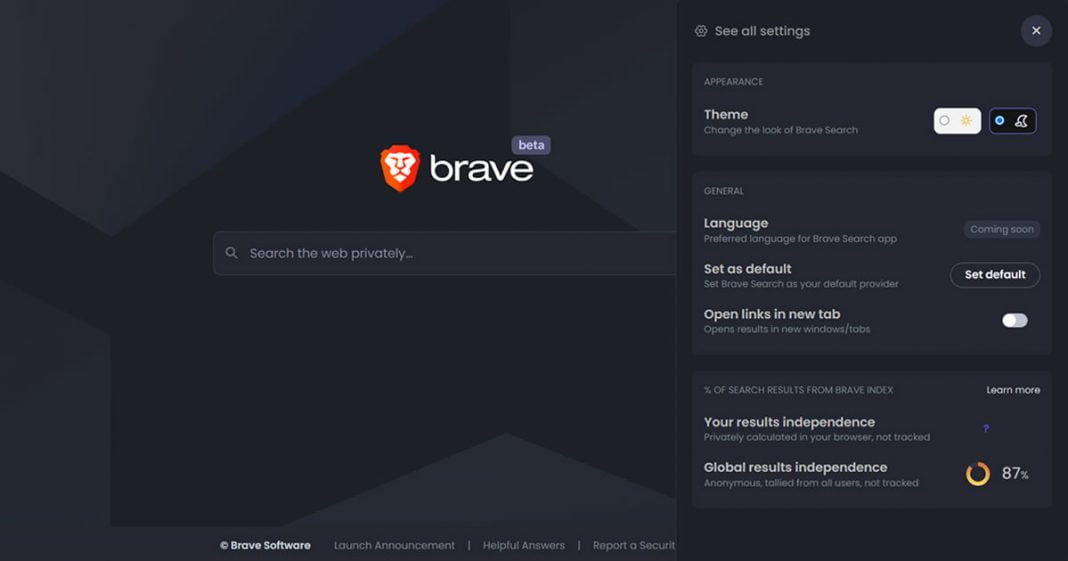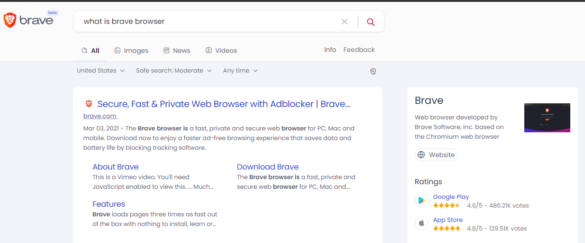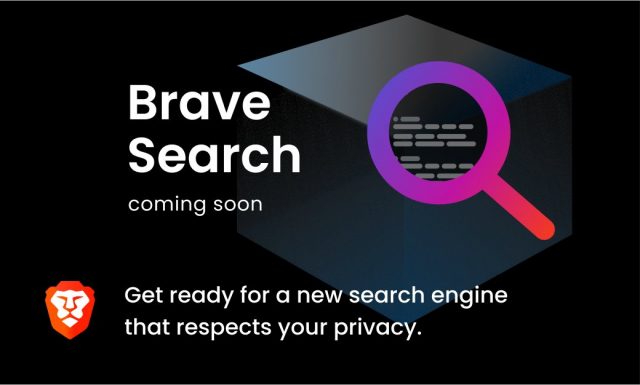

It is a major step forward from the typical server-side aggregation used by the industry. The WDP represents a fundamental shift in how a search index is built to serve relevant results for users. The WDP is a strictly opt-in feature and protects user privacy and anonymity by design, so that contributed data cannot be linked to individuals or their devices, and cannot be linked together for a user or set of users this prevents deanonymization. “As we know from experience in many browsers, the default setting is crucial for adoption, and Brave Search has reached the quality and critical mass needed to become our default search option, and to offer our users a seamless privacy-by-default online experience.”īrave Search is also launching the Web Discovery Project (WDP), a privacy-preserving system for users to anonymously contribute data to improve Brave Search coverage and quality, and its independence and competitiveness against Big Tech alternatives. Our users are pleased with the comprehensive privacy solution that Brave Search provides against Big Tech by being integrated into our browser,” said Brendan Eich, CEO and co-founder of Brave.

“Brave Search has grown significantly since its release last June, with nearly 80 million queries per month. Brave Search will also offer an ad-free Premium version in the near future. īrave Search is currently not displaying ads, but the free version of Brave Search will soon be ad-supported.

Brave Search is also available in any other browser at. Brave users can easily choose a different search option if they prefer by managing their search engine settings. Today’s Brave desktop browser update (version 1.31), as well as the Brave Android app (version 1.31) and the Brave iOS app (version 1.32) all automatically offer Brave Search as the default for new users in these five countries, with fully localized versions in non-English geographies. Existing Brave users will keep their chosen search engine default, and can set Brave Search as the default search engine in Brave or most other major browsers. Privacy-preserving Brave Search now replaces Google as the default search engine used in the address bar for new Brave users in the United States, Canada, and the United Kingdom Brave Search as default also replaces Qwant in France, and DuckDuckGo in Germany, with more geographies to be added in the next several months. Brave Search is built on top of an independent index, and doesn’t track users, their searches, or their clicks. Starting today, new Brave users will have the search functionality in the Brave browser powered by Brave Search, giving them the privacy and independence of a search/browser alternative to Big Tech.


 0 kommentar(er)
0 kommentar(er)
